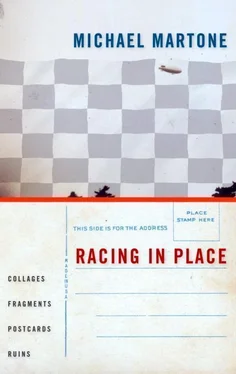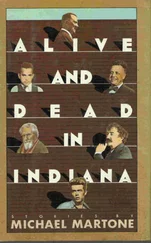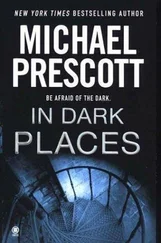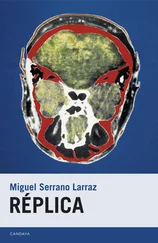6
I do not faint at the sight of blood. I do faint at the mention of the word "blood." It has to do with the vagus, that vagabond cranial nerve that wonders down the neck and thorax and on into the belly. It is the conduit for sensation in a part of the inner ear, the tongue, the larynx, and pharynx, and it motors the vocal chords while it stimulates secretions to the gut and thoracic viscera. My friend, a doctor, called it "one very interesting piece of linguini." An overactive noodle can send the pulse racing and the blood pressure crashing, the electric schematic of sympathetic suggestion. In an instant the blood rushes to my feet, my wiring for some reason shorting out with this outsized response. I'm sensitive. To what? To words. I weathered the witnessing of the births of my two sons attending the attendant fluids, flesh, and surgery. But merely typing the above, thoracic viscera, had me going. I think it is the Latinates, the antique Greek, that medicine employs to sound disinterested that tweaks my vagal response. Doctors have this desire to explain, to render in that dispassionate vocabulary the description of the body. It backfires with me. Laceration for cut. Contusion for bruise. Hemorrhage. I'm more comfortable with bleeding. The impasse that necessitated my first son's birth by cesarean section was described as cephalo-pelvic disproportion. My heart, kardia, skips a beat, arrhythmic. These words for me are engorged, obese with what? Meaning? No, more than meaning. They are viral. They get under my skin, into my system. The codes wired into language still thrill my own harmonic neural strings.
I will tell you a secret. In college I wrote my stories and poems in the medical library, and between insights or inspiration, I sacked the stacks, looking for anatomies and dissection manuals, diagnostics and the casebook descriptions of diseases to read. They would produce in me when I read them a kind of high. These simple combinations of letters, of words, of sentences sparked a collapse of my involuntary systems and, in fact, revealed the existence of those invisible involuntary systems by this very intimate disabling. Mere words could do that. Make me sweat, pale, lose consciousness, collapse. The words about the body took on body. Words were impregnated with meaning, with power. Words have mass, weight, density, gravity. Words have a physics all their own-bodies in motion, bodies at rest.
7
She could keep nothing down. The paradox of morning sickness. Without ingesting any food she grew larger. The logic of dieting was busted. She busted open. The body reworked the material on hand, stored in a snub to entropy, a conservation of matter and energy. This was spontaneous generation. She was sick to death and brimming with health.
There was the time during her pregnancy where she could only stomach white food, beige food at best. Yogurt, rice, mashed potatoes, and oatmeal. As I remember this now, it seems I spent forever making oatmeal in the mornings so that she could get out of bed. I became attuned to the amount of water I added, the amount of time it took to boil. The consistency of the final gruel seemed vital. Too runny or too stiff would trigger another round of debilitating nausea. I was Goldilocks daily searching for this mean, obsessed with food that finally in the fairy tale seemed disconnected from nutrition, diet, weight gained or lost. I remember trying to secret a few raisins, disguised as lumpy clots of cereal, dusting them with camouflaging nutmeg or cinnamon that only initiated in her a gag reflex and revulsion. I finished up the starchy intolerable repasts, thinking I shouldn't let this go to waste, standing before the sink, the stove with a bowl and spoon, eating whitely.
8
There is so much we don't know about pregnancy. For instance, the reasons my wife lost two before the first baby was born and then lost two more before the second. At the time all the doctors vaguely indicated not to worry until the third miscarriage in a row, citing the hopeful notion of diagnostic drift to explain their nonchalance. They figured that miscarriages had been happening with similar frequency and number for all of human history; it's just that now our diagnostic tools were better able to record it. No worry. Come back if it happens again, we were told. The drift of such drift, however, becomes its own explanation. Miscarriages go unexamined-no longitudinal studies, no clinical analyses. Mothers who want to pursue the causes, of course, lose interest when the next pregnancy takes and goes to term, any study of past outcomes forgotten in the time-consumed present moment. We forget to remember. So no one knows. It's a mystery.
All her life my wife has dreamed this rather common dream. She is falling. As she falls she thinks that she is falling and that she is going to die. She plummets, closes on the ground. And then wakes up. Sleeping after she delivered her first baby, she had the dream. She was falling. But this time, as she fell, she didn't think while she was falling that she was going to die. As she fell in her dream, she thought: "Who is going to take care of my baby?" Poets are drawn to a word like "cleave," a word that contains a meaning and simultaneously its opposite meaning. My wife is a poet. Birth is a cleaving and a cleaving.
After the third miscarriage my wife asked the young athletic attending physician when she could start up again. The doctor, perhaps distracted by her charting, perhaps simply self-absorbed, answered that my wife could resume exercise in a few days, later today if the signs indicated. Had we interrupted, with our emergency, this doctor's daily jog, her own regimen of working out? She was wearing running shoes, her hair tied back, sweats. Was she assessing my wife's bulked up body differently now that the body was no longer bulk for a purpose, was no longer pregnant? Time to get back into shape. Into shape. As the saying goes you can't be half pregnant. My wife in an instant had become out of shape. The doctor had misunderstood. My wife was asking how long before we could start again to have sex, to make a baby, to be pregnant. She wanted to get back into that shape.
9
We took pictures. A few days before she was due, she took off her clothes and posed in our sunny living room. There is an extremity to the nakedness during labor. The clothing of modesty is readily shed. The staged renditions of the moment on television and in movies are hilarious with their persnickety management of drapery and screens. We are all born naked. My wife had back labor, and for a while a warm compress on her lower spine helped relieve the pain. Until it didn't. She had dilated, was in the part of labor called transition. She had changed. I applied the heated towel again. "What are you doing?" she screamed. "It feels like you are ripping off my skin!" This nakedness was beyond skin-deep.
Back to the pictures, to the evidence of that body. We marvel still at its transformation. There is the apparent impossibility of it. How could it possibly work? It is freakish in proportion and scale, gravity-defying and grave. There is a luxuriousness as well. The skin, yes, glows. The darker skin of the aureoles, the eyelids, the lips grow darker. On the center line of the belly a vertical line appears running from the sternum, circumventing the belly from pole to pole. The telltale sign of the stomach's rectus muscle's separation, split open like, well, ripe fruit. You can't help it-all the cliches are true. The pregnant body is not a human body any more but a metaphor for ripe, for full. My wife no longer recognizes herself in the pictures. It was a strange visitation, her body inhabited both by a new body and this other body built to birth the baby. We look at the pictures with nostalgia and anticipation. Birth imminent. For me the pregnant body is freakish but irresistible. It is as if the human species is made up of three genders, this new other one, this thing. Or more exactly that the two sexes give birth to this new species. This other other. Obstetric, that Latinate word, means to stand in opposition to. I am sympathetic. But, finally, I have no choice. I must, we all must, wait on it.
Читать дальше












